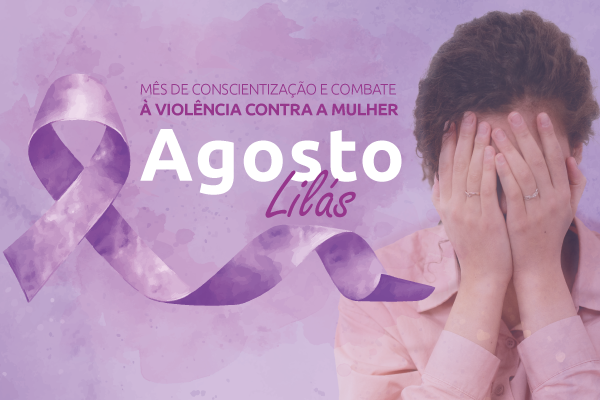The Cantareira Consortium, serving the concessionaire Via SP Serra, completed last Friday (February 6) the opening of the outer...
Lilac August: a month to raise awareness and combat violence against women
DATE: 08/13/2024

On August 7, 2006, the Maria da Penha Law was signed into law, becoming an important reference in the fight against domestic violence in Brazil. This year, the law turned 18, but the number of cases of violence against women continues to rise.
That’s why, in 2022, the Lilac August campaign was created to raise awareness and reinforce measures to combat violence against women. Understanding what misogyny is – repulsion, contempt or hatred for women -, knowing how to identify signs of risk and situations of abuse are the first steps in combating gender violence.
According to the Convention of Belém do Pará – Inter-American Convention on the Prevention, Punishment and Eradication of Violence Against Women, adopted by the OAS in 1994 -, violence against women is any action or conduct, based on gender, that causes death, physical, sexual or psychological harm or suffering to women, in both the public and private spheres.
How to understand
The cycle of abuse can begin at any time. At first, the woman feels uncomfortable, but it’s not physical violence. Embarrassing events follow, such as slapping or unnecessary name-calling during a fight. Then the woman’s life is threatened, her existence is diminished, her decisions are controlled, until it goes as far as physical aggression.
When a woman is assaulted, harassed or humiliated, it is a violation of her rights. The types of violence practiced against women are not limited to aggression that results in bodily injury. There are five types of domestic and family violence – at different levels – against women in the Maria da Penha Law: physical, psychological, moral, sexual and property.
It’s important to understand and know the signs of violence in women. Some of the main signs that a woman is at risk are: depression, anxiety, physical injuries without adequate explanation, a controlling partner, chronic pain in any part of the body or without a precise location, neglect of self-care, isolation from family and friends.
Data from a 2024 survey by the DataSenado Institute in partnership with the Observatory of Women against Violence – OMV – shows that 68% of women know someone who has suffered domestic violence.
To report it, call 180. In addition to the 180 telephone number, it is possible to report violence against women via the Human Rights Brazil app and on the page of the National Human Rights Ombudsman – ONDH – of the Ministry of Women, Family and Human Rights (MMFDH), which is responsible for the service. It is also possible to receive assistance via Telegram. All you have to do is access the app, type in the search “DireitosHumanosBrasil” and send a message to the Women’s Call Center team – Call 180.
In our company, any situation of embarrassment or aggression can be reported through the Ethics Line Channel or by calling 0800 377 8016 – Brazil – and 244 226 434 288 – Angola.



No comments